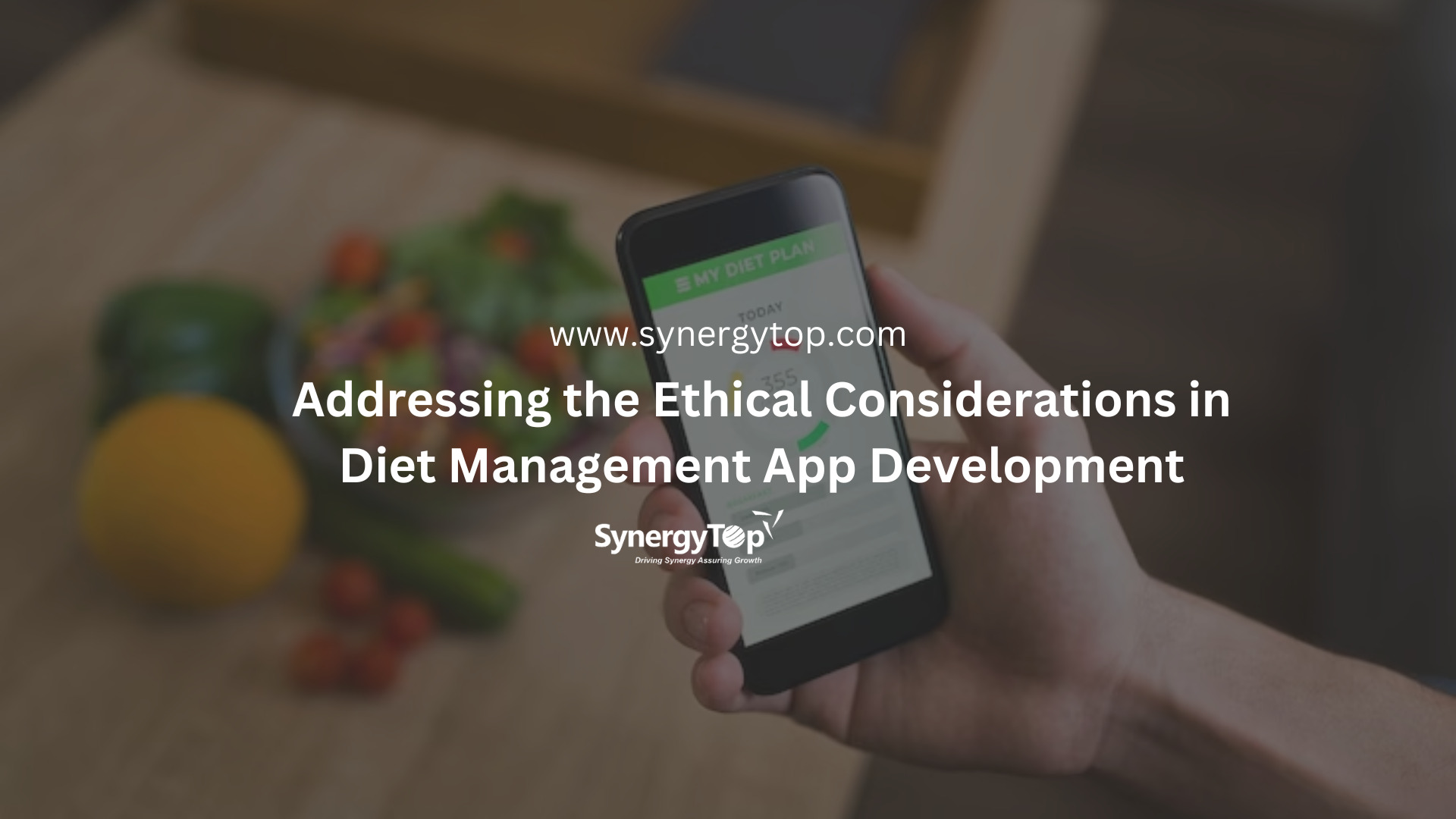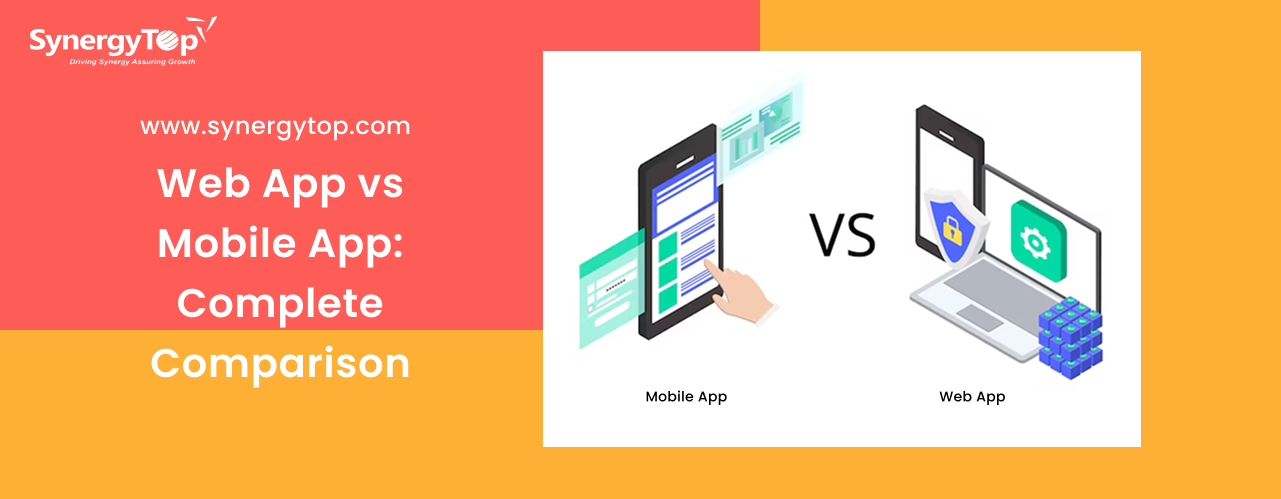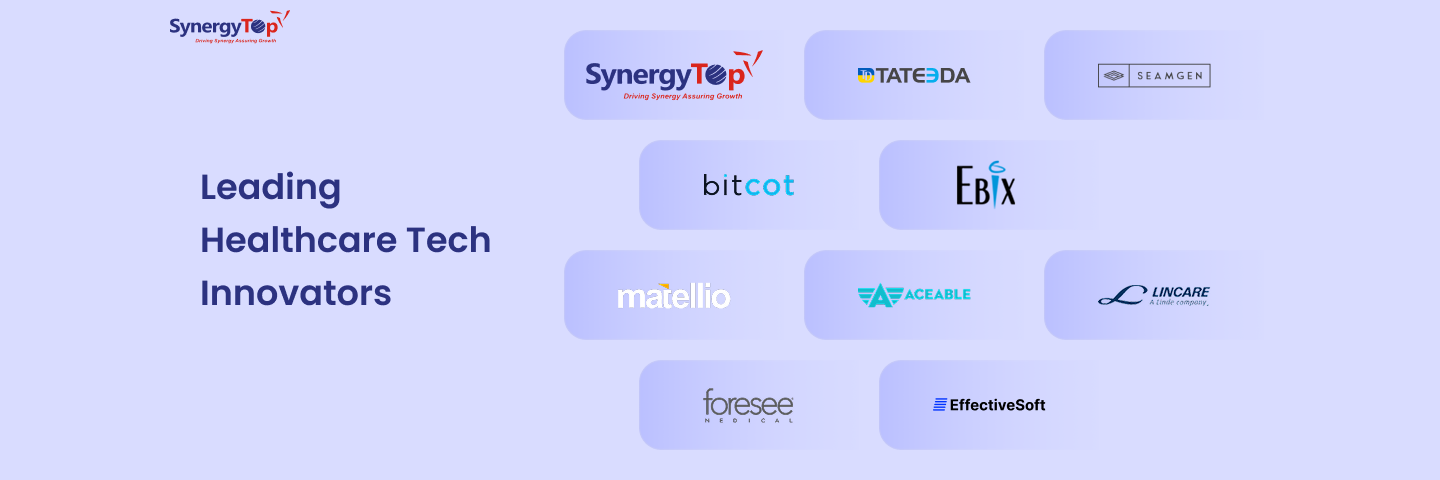There are hundreds of diet management apps available in the market today.

And unless you are living under a rock, you have already used one or the other app for managing your diet.
And why not? Diet management apps have genuinely changed the game when it comes to health and well-being.
They have empowered us to take control of our diets.
They offer personalized meal plans.
And even provided valuable insights into our eating habits.
Also, a majority of these apps are available in a freemium model. So you do save a lot of cash as well, while still getting the best outcomes from diet management.
But amidst all the glitz and glam, there are lurking ethical dilemmas that cannot be ignored.
And the onus for addressing these ethical considerations levied again diet management apps lies on the developers.
Now, the responsibility of the key stakeholders – Diet Management App Companies – cannot be undermined.
However, as responsible development partners, it is imperative that you support and guide the stakeholders in making ethically correct choices while getting diet management apps developed.
Failing to do that can lead to legal repercussions for you as well.
That’s why in this blog, we will discuss 8 pressing ethical considerations in diet management app development. Along with their solutions and what diet management app developers can do.
Let’s dive in.
Ethical Considerations in Diet Management App Development
Ethical Concern 1: Power Asymmetry
Dietary apps may enforce rigid guidelines without considering individual needs, limiting users’ autonomy. For example, calorie-based apps overlook varied nutritional needs, and cultural insensitivity may lead to inappropriate recommendations.
Overly restrictive diets can harm vulnerable users. And exclusive premium content may exacerbate power asymmetry.
Solution:
Implement a user-centered design approach that allows individuals to customize their dietary preferences and goals.
Steps for Developers:
- Conduct user research to understand the diverse needs, preferences, and cultural backgrounds of your target audience.
- Develop an interface that allows users to input their dietary preferences, restrictions, and goals.
- Provide a range of dietary options and guidelines, considering cultural differences and diverse nutritional needs.
- Allow users to personalize the app’s recommendations based on their individual preferences and values.
- Regularly update the app based on user feedback and evolving dietary trends to ensure inclusivity and choice.
Ethical Concern 2: Lack of Personalization
Some diet apps give the same advice to everyone, ignoring our individual needs and health conditions. This one-size-fits-all approach can be harmful and ineffective. Personalized plans are important for better results and safety.
Solution:
Incorporate features that enable personalized recommendations based on the user’s health conditions, medical histories, and goals.
Steps for Developers:
- Include a comprehensive user profile section where users can input relevant information such as age, gender, weight, height, allergies, dietary restrictions, and specific health conditions.
- Leverage machine learning algorithms to analyze user data and provide tailored recommendations for each individual.
- Collaborate with healthcare professionals or registered dietitians to develop algorithms that consider the impact of specific health conditions or medications on dietary choices.
- Continuously update and refine the personalization algorithms based on user feedback and scientific research.
Ethical Concern 3: Unrealistic Expectation
Some dietary apps promote or endorse strict diets or extreme weight loss goals that may be unrealistic or unhealthy. This can contribute to the development of unhealthy eating habits, disordered eating behaviors, and negative body image.
Solution:
Promote evidence-based, sustainable, and realistic goals for healthy eating.
Steps for Developers:
- Provide educational content that emphasizes the importance of balanced nutrition and long-term lifestyle changes.
- Avoid endorsing or promoting extreme diets or rapid weight loss approaches.
- Collaborate with nutrition experts or registered dietitians to develop content that encourages healthy and realistic goals.
- Incorporate features that track progress over time and celebrate small achievements to promote motivation and a positive mindset.
Ethical Concern 4: Limited Nutritional Education
While dietary apps aim to improve nutritional knowledge, they may oversimplify complex nutritional concepts or rely on incomplete or inaccurate information. This can lead to a shallow understanding of nutrition. And prevent users from making informed choices about their diet.
Solution:
Enhance the educational aspect of the app by offering accurate and comprehensive nutritional information.
Steps for Developers:
- Collaborate with registered dietitians, nutritionists, or reputable organizations to develop evidence-based educational content.
- Present nutritional information in an easily understandable format, avoiding excessive jargon.
- Include interactive features such as quizzes, articles, or videos to engage users and promote deeper learning.
- Regularly update the app’s content to reflect the latest scientific research and dietary guidelines.
Ethical Concern 5: Potential for Obsession and Anxiety
Engaging with dietary apps that emphasize tracking, monitoring, and calorie counting can create an obsessive focus on food and lead to heightened anxiety about eating. This can negatively impact mental well-being and contribute to the development or exacerbation of eating disorders.
Solution:
Encourage a balanced approach to eating and promote mindful eating practices.
Steps for Developers:
- Incorporate features that focus on positive aspects of nutrition, such as promoting enjoyment of food, mindful food choices, and intuitive eating.
- Provide reminders or notifications that encourage users to prioritize their mental and emotional well-being along with their physical health.
- Include resources or guided exercises for stress reduction, mindful eating, or body positivity within the app.
- Monitor user feedback and conduct user surveys to identify any potential triggers for obsession or anxiety and make necessary adjustments to the app’s design and features.
Ethical Concern 6: Data Privacy and Security Concerns
Many dietary apps require users to input personal information, including health data, eating habits, and exercise routines. Inadequate privacy measures or potential data breaches can compromise users’ sensitive information, leading to privacy violations or identity theft.
Solution:
Prioritize strong data privacy measures to protect user information.
Steps for Developers:
- Implement industry-standard encryption protocols to secure user data during transmission and storage.
- Obtain informed consent from users regarding data collection, usage, and sharing practices.
- Anonymize or aggregate data whenever possible to minimize the risk of re-identification.
- Regularly conduct security audits to identify vulnerabilities and address them promptly.
- Keep users informed about the app’s data privacy measures and policies through clear and transparent privacy statements.
Ethical Concern 7: Bias and Inclusivity
Dietary apps may perpetuate bias by favoring certain dietary ideologies, cultural norms, or body standards while neglecting others. This lack of inclusivity can lead to the marginalization or exclusion of individuals with diverse dietary preferences, cultural backgrounds, or health conditions.
Solution:
Foster inclusivity by offering a wide range of dietary options and catering to diverse cultural, religious, and health-related needs.
Steps for Developers:
- Conduct regular reviews and audits of the app’s content and recommendations to identify and eliminate any biases or exclusions.
- Ensure that the app provides information and support for a variety of dietary preferences, including vegetarian, vegan, gluten-free, and culturally diverse diets.
- Collaborate with nutrition experts from different backgrounds to ensure the app’s content is inclusive and respectful of diverse cultural and religious practices.
- Actively seek user feedback to address any potential biases or exclusions and continuously improve the app’s inclusivity.
Ethical Concern 8: Lack of Professional Guidance
Relying solely on dietary apps without consulting qualified healthcare professionals or registered dietitians can pose risks to individuals’ health. Apps should not be seen as substitutes for personalized, evidence-based advice from healthcare experts.
Solution:
Encourage users to consult with healthcare professionals and provide resources for finding qualified professionals.
Steps for Developers:
- Clearly state that the app is not a substitute for professional advice and encourage users to consult with healthcare professionals for personalized guidance.
- Provide links or resources within the app to help users find registered dietitians or healthcare professionals in their area.
- Collaborate with healthcare organizations to develop partnerships or referral programs that connect users with trusted professionals.
- Incorporate disclaimers throughout the app, reminding users of the importance of seeking professional advice for their specific health conditions or dietary needs.
Getting Started Towards Diet Management App Development
With that, you now know the key ethical considerations in diet management app development and how to address that with your team of developers.
However, it is also important to know that working with reputed diet management app developers will always prove to be beneficial. That’s because they’ll have the required experience in tackling the ethical considerations in diet management app development. Further, they’d be able to leverage their former experience and ensure suitable results for you.
We, at SynergyTop, have worked with several healthcare sector companies and also developed diet management applications in the past.
Our former experience gives us an edge in the niche, making us a dependable partner for your diet management app development needs.
So don’t wait, schedule a no-cost consultation with our team and get your diet management app off the ground soon.
















